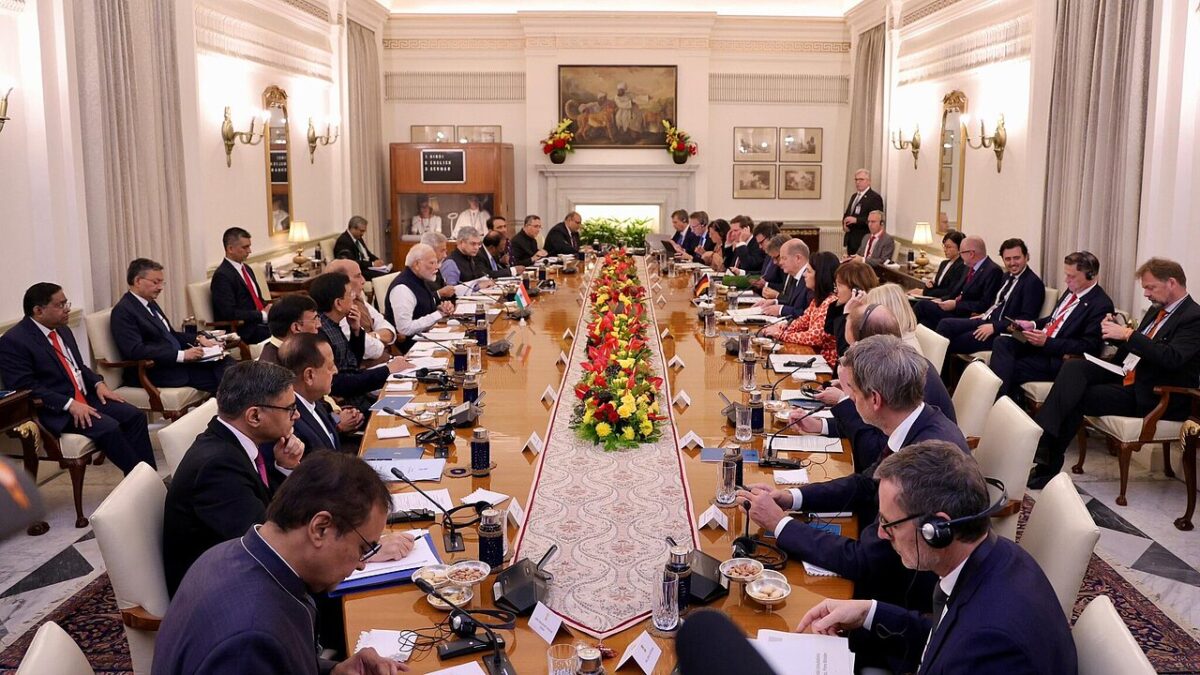India and Germany today released the “Indo-German Green Hydrogen Roadmap” to promote the market ramp-up of green hydrogen. Both sides officially agreed and exchanged the roadmap in the presence of the German Chancellor Olaf Scholz and the Indian Prime Minister Narendra Modi during the 7th Inter-Governmental Consultations (IGC) in New Delhi.
This roadmap will remain in effect for the next five years.
During the last IGC, both leaders had tasked the Indo-German Green Hydrogen Task Force to develop an Indo-German Green Hydrogen Roadmap that would define the future cooperation between India and Germany.
The roadmap outlines key strategies to encourage private sector investment, promote green hydrogen trade and export, and facilitate the exchange of information, particularly around challenging hard-to-abate sectors and certification standards. Specific dialogue formats will enhance communication and cooperation, ensuring that stakeholder perspectives are considered in the decision-making process.
“Bilateral cooperation on green hydrogen will be focused on decarbonising hard-to-abate industries such as steel, refineries, fertilisers, offtake in transport with the focus on shipping, aviation, and heavy-duty road transport, decentralised stationary energy applications, as well as hydrogen transport and storage technologies. Among others, these include sustainable refuelling options for international cargo ships and aircraft in both countries; and exchange of information for suitable short-, medium- and long-distance transport options for green hydrogen,” as per the document.
Under the Strategic Interventions for Green Hydrogen Transition (SIGHT) programme, India provides incentives to companies manufacturing electrolysers to be used within the green hydrogen value chain. As per the document, German companies may also participate in this programme as per the conditions stated in the tender document. German subsidies for the establishment of electrolysers for the green hydrogen value chain manufacturing in Germany would be open to Indian companies as per eligibility criteria under the respective subsidies scheme.
Germany and India share the common goals of reducing their reliance on fossil fuel imports, decarbonising their economies, and establishing robust national green hydrogen economies. By working together and leveraging their unique strengths, both nations aim to make green hydrogen economically viable on a global scale, contributing to the goals of the Paris Agreement.
To institutionalise ongoing dialogue, a permanent working group under the Indo-German Energy Forum will replace the existing Indo-German Green Hydrogen Task Force.
This content is protected by copyright and may not be reused. If you want to cooperate with us and would like to reuse some of our content, please contact: editors@pv-magazine.com.









By submitting this form you agree to pv magazine using your data for the purposes of publishing your comment.
Your personal data will only be disclosed or otherwise transmitted to third parties for the purposes of spam filtering or if this is necessary for technical maintenance of the website. Any other transfer to third parties will not take place unless this is justified on the basis of applicable data protection regulations or if pv magazine is legally obliged to do so.
You may revoke this consent at any time with effect for the future, in which case your personal data will be deleted immediately. Otherwise, your data will be deleted if pv magazine has processed your request or the purpose of data storage is fulfilled.
Further information on data privacy can be found in our Data Protection Policy.